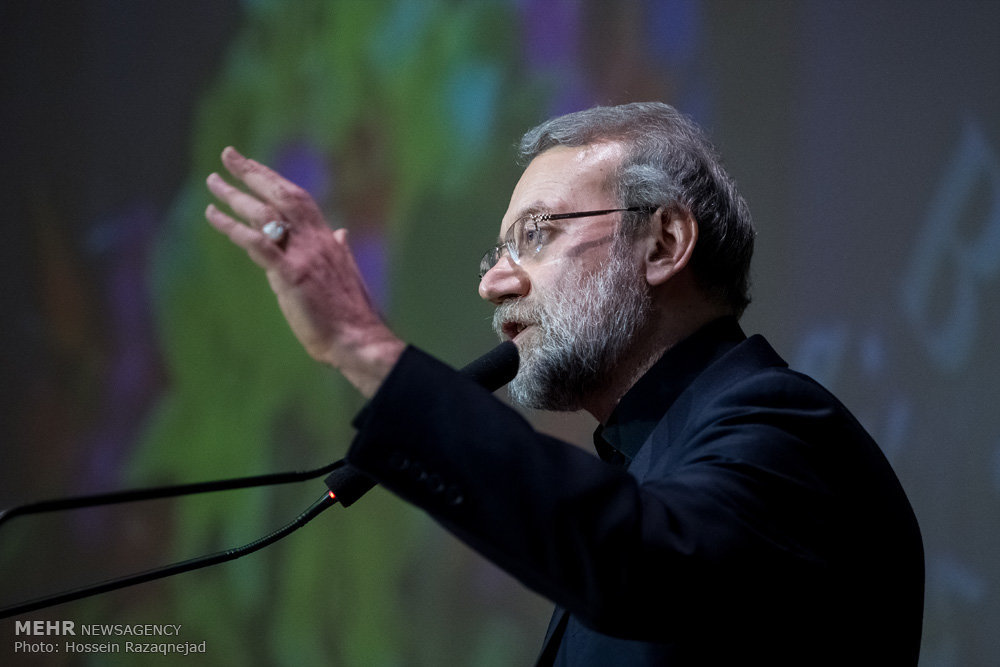ID :
384465
Wed, 10/21/2015 - 10:27
Auther :
Shortlink :
https://oananews.org//node/384465
The shortlink copeid
Iran's Parl. Speaker: Terrorism jeopardizes energy security in ME

TEHRAN, Oct. 20 (MNA) – Iran’s Parliament speaker has said current trends in fighting terrorism in the Middle East will pose serious challenges to energy security.
Ali Larijani who was speaking to the National Conference of Energy and Oil closing ceremony in Tehran’s Olympic Hotel on Tuesday, expressed hopes that a clear path would be opened for investment in oil and gas sector. “Investment in this sector would naturally attract attentions since Iran is an oil and gas producing country; naturally enough, the focus of the first chapters of budget plan should be on this important sector,” Larijani told the meeting.
He divided countries to two groups of oil-producing and oil-importing countries; “the first group’s major concerns are attainment of a sustainable stability; the second seeks to optimize their economy using their incomes from oil and gas. The first camp is more engaged in the uncertainty over the security,” Larijani asserted.
“The current conditions of pandemonium in the Middle East is unprecedented since the Second World War; terrorism has plagued the region, posing threats to the energy security; for example, Libya was once an oil exporter; now the country is ruled by rival factions, and the oil industry had been virtually destroyed; or Iraq, which was once an important producer of oil now grapples with the threat of ISIL,” Larijani addressed the meeting. “Terrorists had drastically changed their resources as well; in three decades ago, the Jihadis in Afghanistan had limited resources; now however, the world is watching with shock and awe ISIL’s buying of the arms worth $30bn which the groups earn from selling oil to customers seeking cheap or low-priced oil,” he detailed.
“Unless a global alliance against terrorism addresses and tackles terrorism, the challenges will remain still strong for energy security; Iran’s policy to address the issue has been creating a sustainable security in the region. This would serve the interests of others as well as ours, since in a chaotic conditions, healthy interactions would be impossible,” Larijani emphasized.
Larijani believed that Iran’s claims on seeking security and stability to the region was well-grounded; “we came to Iraq to help the government with fight against ISIL when only they asked us to do so. This is not mere propaganda,” he added.
Still turning to different issue, Parliament speaker made passing hints to Iran’s nuclear issue; “it would be definitely possible to solve the nuclear issue; however, in international issues, there would be no other option than to be patient with the process of organizing; we have reached some results after marathon of negotiations, and countries with an interest in Iran’s markets should make a clear understanding of Iran’s policies,” he proposed.
Larijani then turned to private sector, believing that the private sector should be strengthened either in terms of technology or financial resources; “Article 44 of the Constitution on privatization is comprehensive enough, albeit with some difficulties rising in implementation; the heavy hands of the government still felt as a rival for the private sector. In an uncompetitive and unfair situation, private sector would only languish under the shadow of governmental and semi-state players in economy,” he objected.
Larijani hailed any bill by the Ministry of Oil to address the pitfalls of the competitive atmosphere, adding that Parliament would approve of such a bill to help take an important step forward.





